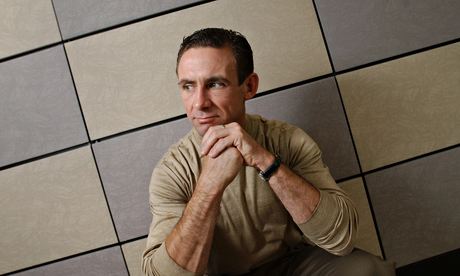
Insomnia has its upside. The writers Joy Williams and Lewis Hyde describe how an artist must be "broken" to perform an original act of creation. A writer or painter must be knocked back by shock or suffering that stuns his or her rational mind and allows access to inspiration, whether that bold idea comes from some deeply buried detail of psychology or some external daemon muse. Fasting works. Rejection, too. Insomnia works wonderfully.
In 1993, I found myself stranded in Reno, Nevada, with no money and nowhere to stay. At night I wandered sleepless through the empty all-night casinos and restaurants, exhausted, delirious, and inventing a story about a man who thought he had insomnia but was actually living a double life: whenever he thought he was asleep, his alter ego would venture forth to have all the adventures he, himself, could never consciously dare. As the sun rose over the "biggest little city in the world", I had the basic novel written in my head.
Another writer, dear friend and bestseller Chelsea Cain, says that writers begin life by telling themselves "self-comforting" stories in order to fall asleep as children. Over time, those stories grow larger and more detailed until they come to resemble the epics of Tolkien, but they remain the writer's chief method of relaxing into unconsciousness. They become a cumulative, sort-of self-told lullaby, if you will. Turning that habit into a career is inevitable, like any drunk who dreams of owning a bar. Chelsea's own novels, her Heartsick series and the terrific new Kick series she'll be launching this summer, she says are all based on one decades-long saga that still lulls her to sleep every night.
It's easy to love the truth, and Chelsea's theory rings true because she's identified a habit I've also practised since my sleepless childhood. It should surprise no one, but parts of my life-long self-comforting story involve fighting. Fighting and losing. Win the fight in your imagination, and you'll never fall asleep, but studies show that after a boxer or wrestler loses a match, his testosterone levels drop drastically. His metabolism slows. All these changes, it's speculated, function to prevent him from entering a new fight before he's physically recovered.
That's why so much of the novel Fight Club was about losing fights. As they say in the book and movie, "Go out and pick a fight, and lose it." My long, imaginary fights would be wordless and brutal, and then I'd lose and fall asleep.
More recently, I've found a less dramatic method. If I picture myself moving through space, for example walking along a path through a forest or exploring a large, empty house, I fall asleep. Houses remembered from my childhood work better than counting sheep.
As with the fights, language ruins it. Anything verbal ruins it. Talking or even thinking in words engages some aspect of my brain and excites me. Instead of falling asleep, I find myself at the kitchen table, making notes for a new writing project.
Another method that works is to feel cold, or imagine feeling a chill. I'll imagine that I'm buried in snow, hence the ice caves in Fight Club. Other insomniacs I know open windows mid-winter or drink iced water before going to bed. In bed, as my body warms, I drift off.
To be honest, Ambien helps me sleep more nights than I care to admit – although I'm uncertain about the quality of that sleep. Too often I rise in the morning to find that a sleepwalking, manic version of myself has washed and folded the laundry, reorganised the shelves in the garage, cleaned the fireplace and wrapped gifts for Christmas – perhaps some hybrid of Tyler Durden and Martha Stewart. Those mornings are akin to the story of The Elves And The Shoemaker: it's a wonder to find tedious work done, but it's unsettling to have no memory of having performed it.
Last year, those elves prepared my taxes. It's not difficult to imagine that soon they'll be writing my books. I'll be entirely removed from the process. More and more, as Brad Pitt said, "You're letting yourself become… Tyler Durden." Could that be what happens when a person takes too many sleeping pills? You go off and live a new life? As someone braver, bolder and better organised, I hope.
• Chuck Palahniuk's new novel, Beautiful You, will be published in October by Vintage.

